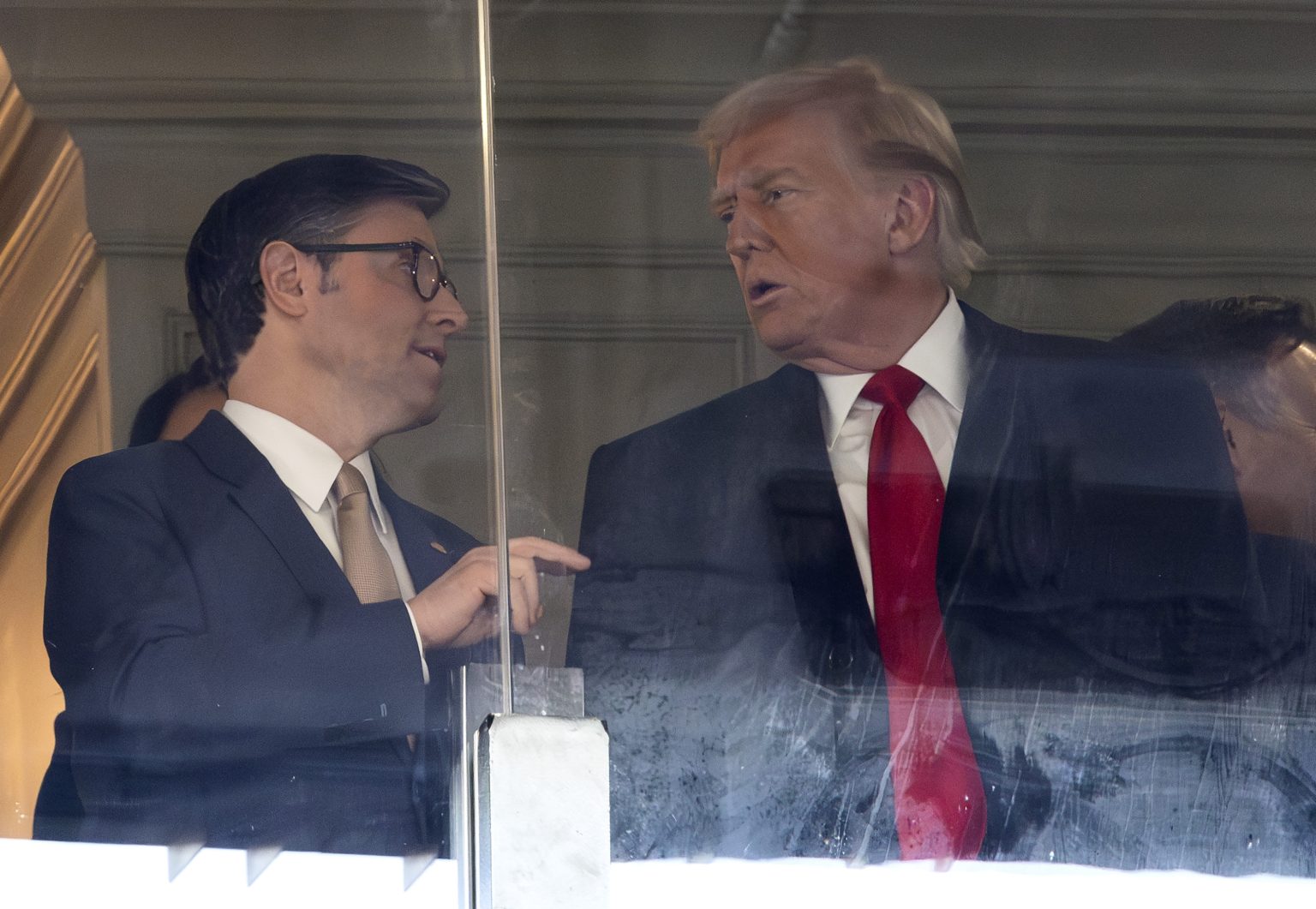The nascent speakership of Mike Johnson finds itself on shaky ground as some Republican allies urge President-elect Donald Trump to unequivocally endorse Johnson and quell a potential protracted battle for the gavel. This plea stems from concerns that a drawn-out leadership contest could impede the certification of Trump’s electoral victory, a constitutionally mandated process scheduled for January 6th. The urgency of the situation is underscored by the tight timeline; the new House convenes on January 3rd, with the election of the Speaker as its first order of business. Given the slim Republican majority, even a small number of defections could derail Johnson’s bid, leaving the House in a state of paralysis just days before the crucial election certification.
The crux of the current predicament lies in the recent government funding saga. Johnson, who ascended to the speakership in October 2023 after weeks of intra-party wrangling following Kevin McCarthy’s ouster, has faced criticism from within the Republican ranks over his handling of the spending bill. The initial bipartisan bill he championed, which lacked Trump’s demands for debt ceiling provisions, failed to garner sufficient support. Subsequently, a Trump-backed bill incorporating the debt ceiling provisions also failed in a resounding defeat, forcing a return to a compromise that excluded the debt ceiling issue. While Johnson claims Trump is “happy” with the final agreement, the president-elect’s silence has fueled uncertainty, leaving his support for Johnson’s leadership in question.
Trump’s own pronouncements have further complicated the matter. He has publicly stated that Johnson’s future as speaker hinges on his handling of the spending package and his ability to thwart perceived “Democrat traps.” Simultaneously, he has emphasized the importance of addressing the debt ceiling, either through elimination or extension, suggesting a potential disconnect between his priorities and the compromise reached. This ambiguity has left Republicans like Representatives Gimenez, Tenney, and Fallon anxious about the potential for a leadership vacuum, particularly given its potential to delay the certification of Trump’s election. They believe a clear and public endorsement from Trump is crucial to solidifying Johnson’s position and averting a potentially damaging leadership crisis.
The concerns extend beyond the Republican ranks. House Minority Leader Hakeem Jeffries has highlighted the “real risk” of Johnson failing to secure reelection, noting that Democrats will not intervene to rescue the Republicans from their internal divisions. This underscores the fragile state of the House and the potential for gridlock if the speakership remains unresolved. The situation is further complicated by Trump’s continued public pronouncements on the debt ceiling, creating additional pressure on Johnson and the Republican caucus to address this contentious issue. The lack of clarity around Trump’s intentions and his continued focus on the debt ceiling issue adds another layer of complexity to an already precarious situation.
Despite the mounting pressure and internal dissent, Johnson remains the frontrunner for the speakership. However, the public declaration by Representative Massie to vote against him, coupled with the indecision of several other Republicans, signals a precarious path forward. The coming days will be crucial in determining whether Johnson can consolidate support within his party or whether the House will be plunged into another protracted leadership battle. The outcome hinges not just on Johnson’s actions but also on Trump’s willingness to publicly back him and potentially quell the growing dissent within the Republican ranks. The stakes are high, with the potential for a leadership vacuum impacting not only the functioning of the House but also the certification of the presidential election itself.
The overarching narrative revolves around the fragility of power within a narrowly divided House, where a small number of dissenting voices can have significant consequences. The situation highlights the challenges of governing in a highly partisan environment and the potential for internal divisions to disrupt even the most fundamental processes of government. Johnson’s speakership, secured after weeks of political maneuvering, is now threatened by the very same factionalism that led to McCarthy’s ouster. The uncertainty surrounding Trump’s support and the looming debt ceiling issue further exacerbate the situation, creating a complex and volatile political landscape as the new Congress prepares to convene.

